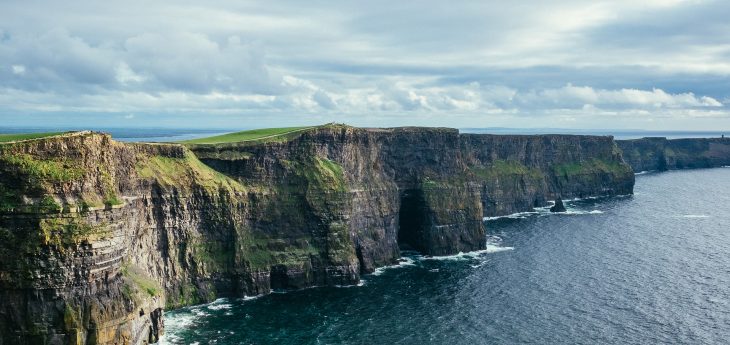
- Population: 4,125,000
- Capital: Dublin
- Area: 27,133 square miles
- Language: English, Irish
- Religion: Predominantly Roman Catholic
- Currency: Euro
- Life Expectancy: 77 years
- GDP per Capita: U.S. $29,300
- National symbol: Shamrock
- Prime Minister: Enda Kenny
- Geography: Ireland Is Part of the British Isles
- Economy: Ireland’s Economy Is Largely Dependent on a Range of Food Products
- Culture: Pub Culture Is a Major Part of Irish Identity
- Religion: Most Irish People Are Roman Catholics
- Language: Ireland Has Its Own Language
- Geography: Dublin Is The Most Densely Populated Area in Ireland
- Arts: Ireland Has Given Us Many Famous Writers
- History: Ireland Tried to Throw off British Rule in the Easter Rebellion
- History: The Good Friday Agreement Was a Commitment to Peace
- Geography: Many Irish People Live Overseas
- Ireland Had a Female President in 1990
- Ireland Legalized Same-Sex Marriage in 2015
- Halloween Originates in Ireland
- Not Many Irish People Really Have Red Hair
- St Patrick’s Day Is Celebrated All Over the World
- Ireland Was One of the First Countries to Use the Euro
- 25% Of Europe’s Computers Are Made in Ireland
- Ireland Is Committed to Addressing Climate Change
- Ireland Has Some Unique Sports
- Ireland Has Won the Eurovision Song Contest More Than Any Other Country
Ireland Facts Infographics
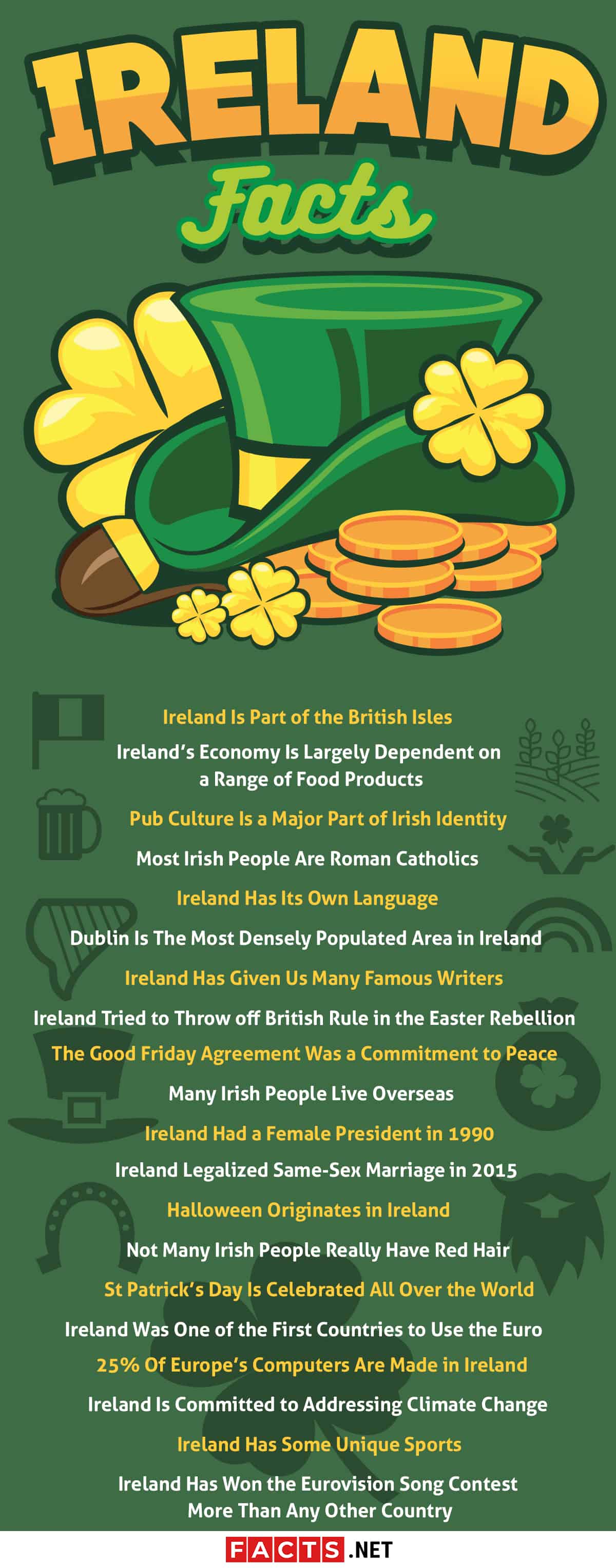
Ireland Is Part of the British Isles
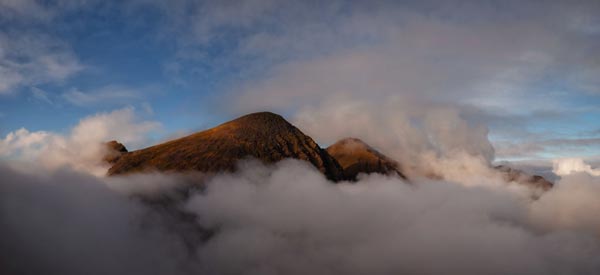
One of the most basic of our Ireland facts reveals that the country is in the Atlantic Ocean, and is part of the British Isles. It is separated from Great Britain by the Irish Sea. It is split into Northern Ireland and the Republic of Ireland, and has been since the Partition in 1921. Northern Ireland is still a part of the UK, while the Republic of Ireland has its own identity. Ireland consists of a central zone, surrounded by mountainous areas. The highest peak is Carrantuohill in County Kerry, rising to 3,415 ft (1,041 m). The main river is called the Shannon, beginning in the north, flowing south and culminating in the Atlantic.
Ireland’s Economy Is Largely Dependent on a Range of Food Products
Ireland facts tell us about a number of key industries, many of which export goods overseas, that are important for its economy. These include the following: brewing textiles, clothing, chemicals and pharmaceuticals, machinery and computers. Much of Ireland is rural, hence its wide variety of agricultural produce. Crops such as turnips, barley, potatoes, sugar beets and beef are produced in abundance, and many of these are exported to other countries around the world.
Pub Culture Is a Major Part of Irish Identity
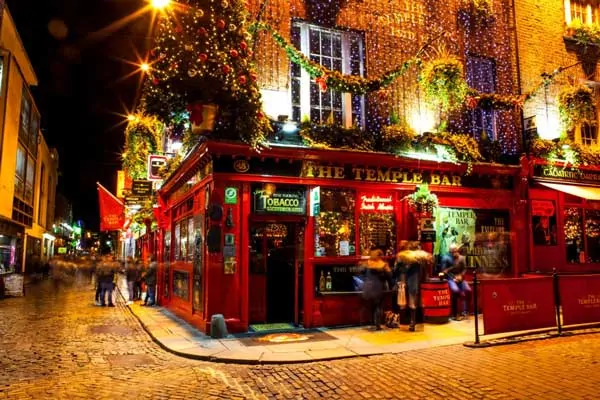
Pub culture is very strong in Ireland: the Irish like to socialize, and pubs are crucial for forming strong connections and a sense of social identity. Most pubs feature music and fine ales. Playing music and singing, often spontaneously and in groups, is a key feature of Irish pubs. Ireland facts show that the Irish consume on average 131.1 liters of beer per year, which is the second highest consumption in the world after the Czech Republic. There are many famous Irish beers including Guinness, Smithwicks (Kilkenny), and Harp Lager.
Most Irish People Are Roman Catholics
Ireland is a country of strong religious faith. This has led to conflict in the past – between Protestant and Catholic, or Northern Ireland and the Republic of Ireland, ending in 1921 with the Partition or separation of North and South. Nowadays, 88% of Irish citizens are Roman Catholic. Furthermore, most of these are practicing Catholics and attend church regularly: the Republic of Ireland has one of the highest rates of church attendance in the West. Almost half of its citizens regularly attend mass.
Ireland Has Its Own Language
Although English is the main language in Ireland, Ireland facts show that its ancestral language, Irish Gaelic is still in existence. Some 1.6 million people are competent in Irish, but only 380,000 fluent speakers currently exist. While it could be viewed as a dying language of the world, many still fight to retain this important part of Irish heritage and identity. Around Dublin especially, there are communities who use it and are committed to retaining its status. It is an official language of the European Union.
Dublin Is The Most Densely Populated Area in Ireland
While most of Ireland is rural, the density of the population increases sharply around the Dublin area: over one quarter of the total population live in this region. This is reflected in house prices (it is very expensive to buy property in and around Dublin, and comparatively cheap elsewhere), which vary considerably across the country. Other large cities in Ireland include Galway and Kilkenny. Much of rural Ireland has a very low population density.
Ireland Has Given Us Many Famous Writers
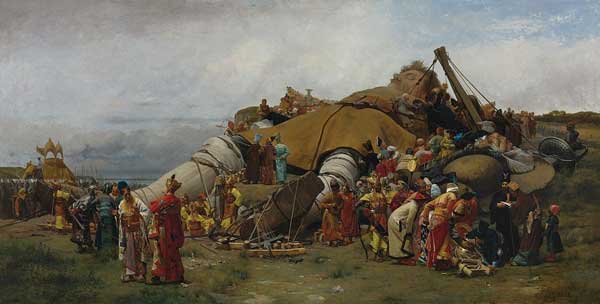
Ireland has a rich cultural history in terms of storytelling, myths and legends – and it has produced more than its fair share of great writers. Famous writers from Ireland include Jonathan Swift who wrote Gulliver’s Travels, Bram Stoker, author of Dracula, and James Joyce, who wrote Ulysses, which was set in Dublin. W. B Yeats conveys a strong sense of the landscapes, myths and atmosphere of Ireland in his poetry. Irish legends are many and have long inspired a nation of gifted storytellers.
Ireland Tried to Throw off British Rule in the Easter Rebellion
In Dublin in 1916, the Easter Rebellion was a protest where Irish Nationalists protested against British rule. After much violence over the years, the Irish Free State was established in 1922, and six northern counties remained part of the United Kingdom, while the rest of Ireland became a republic. Civil war and years of unrest followed this, with the IRA receiving much attention and condemnation as they fought against Partition. In 1937, a new constitution changed the nation’s name to Eire, although it’s known as the Republic of Ireland in English.
The Good Friday Agreement Was a Commitment to Peace
Ireland facts reveal that one of the most important and well-known political breakthroughs to take place in Ireland was the Good Friday Agreement of April 10, 1998. This enabled Protestants to share political power with Catholics and gave the Republic of Ireland some say in the affairs of Northern Ireland. This was a popular agreement: in the North it was approved by a vote of 71% and in the Irish Republic, 94% voted for it. The new government in Northern Ireland was formed on December 2, 2000, but it was suspended several times mainly because Sinn Fein (the group concerned with building a republic) was reluctant to disarm the IRA, which is essentially a terrorist group that is attached to Sinn Fein. In 2005, however, the IRA agreed to peaceful solutions. Gerry Adams, the leader of Sinn Fein, and Rev. Ian Paisley, the head of the Democratic Unionist Party, met in 2007 for the first time and agreed on a government that would share power. This meant that Northern Ireland was now in charge of its own affairs and not dependent on English rule.
Many Irish People Live Overseas
It is interesting that many strong Irish communities exist outside of Ireland. Ireland facts show that a massive 14 times more people who class themselves as Irish currently live in other countries than live in Ireland itself. Some 80 million Irish people live in a variety of countries around the world. They live in countries such as the United States, the United Kingdom, Canada, Australia, Argentina, New Zealand, Mexico, South Africa and states of the Caribbean and continental Europe. Most Irish expats remain proud of their identity, celebrating St Patrick’s Day, going to Irish bars, forming Irish groups and staying true to their roots. Three million still hold Irish nationality.
Ireland Had a Female President in 1990
In the 1990 elections, Mary Robinson was elected the republic’s first woman president. The election of a candidate who was not only a woman, but also had socialist and feminist leanings, was a huge paradigm shift in Irish politics. This reflects a growing liberalism in Irish society, which previously had tended to be quite conservative. Since then, Ireland has been forward thinking in many policies.
Ireland Legalized Same-Sex Marriage in 2015
On May 22, 2015, Ireland became the first country in the world to legalize same-sex marriage via a national referendum. It is an interesting Ireland fact that this vote took place just 22 years after homosexuality was decriminalized, showing how quickly this traditionally quite conservative culture has changed and become much more tolerant. Some 62% of people who cast their vote voted in favor of legalizing same-sex marriage.
Halloween Originates in Ireland

Halloween actually originated in Ireland and has its basis in the ancient Gaelic festival of Samhain, which was a harvest festival held on October 31 each year to mark the end of summer. Samhain became associated with All Saints Day (November 1) at some point during the early Middle Ages. Over time, All Saints and Samhain fused together and became the day of the witches and ghosts that people all over the world now know as Halloween.
Not Many Irish People Really Have Red Hair
Although the popular and enduring stereotype of Irish people is someone with bright red hair, Ireland facts show that this is not actually true. In reality, only around 9% of the Irish population have this hair color. Red hair carries a strong gene, making it very likely to be passed on to offspring. Up to 46% of Irish people are thought to carry this gene, despite not having red hair themselves.
St Patrick’s Day Is Celebrated All Over the World
Saint Patrick’s Day is Ireland’s official national holiday. It is a religious and cultural holiday that has been around since the 17th century, originally celebrating the arrival of Christianity in Ireland in the form of Patrick who converted the pagan Irish. The March 17 holiday is celebrated in Ireland with a national holiday and has really taken off around the world. On St Patrick’s Day it is traditional to wear green, and decorate pubs, homes and public places with shamrocks. Parties and parades mark the occasion, and drinking beer or other alcoholic drinks is often a large part of the celebrations.
Ireland Was One of the First Countries to Use the Euro
Ireland was one of the initial 12 European Union nations that began using the euro in 2002. They have their own version of the 1 euro coin displaying the image of a harp, which is a symbol of Ireland. While the euro was an important symbol of European unification, it has proved to be a problematic currency. Countries in southern Europe – like Portugal and Greece – have fallen into severe problems in recent years. Ireland also had problems but adopted austerity measures in 2008 much more successfully; since then the economy has been slowly improving.
25% Of Europe’s Computers Are Made in Ireland

One of our Ireland facts that is quite surprising goes some way towards explaining the recent surge in the country’s economy. American hi-tech companies have been investing in Ireland for some years now, with impressive results. Ireland is now the world’s largest exporter of software. Google, Microsoft, Apple, IBM, Dell, Intel, Motorola, Oracle, Lotus, and Boeing Computer Services all have headquarters or at least regional centers in Ireland. As of 2015, 25% of Europe’s computers are made in Ireland.
Ireland Is Committed to Addressing Climate Change
It is fitting that for a country so closely associated with the color green, Ireland should be a leading country in introducing policies to gradually improve the environment. In 2002 Ireland was the first country in the world to introduce an environmental tax for plastic shopping bags. This has cut down hugely on plastic waste and many countries have since followed suit. In 2004, Ireland was the first country to introduce a public smoking ban. Again, throughout the world, this has now become quite standard.
Ireland Has Some Unique Sports
Gaelic football is the most popular team sport in Ireland. This form of soccer
has been played for centuries in Ireland and used to be known as Caid. Another quirky sport that is little known outside of the country is hurling, which is somewhat similar to hockey. This is a sport that is played at high speed – in fact it is the fastest field sport in the world. Other popular sports in Ireland include rugby, horse racing, cricket,
rowing, soccer and netball. When it comes to competing at the Olympics, however, Ireland has achieved most of its successes in boxing.
Ireland Has Won the Eurovision Song Contest More Than Any Other Country
With such a strong tradition of making music, it is perhaps not one of our more surprising Ireland facts that Ireland has won the Eurovision song contest more times than any other country. Representatives of the nation have participated in the Eurovision Song Contest 49 times since it first took place in 1965. Since then, they have missed only two contests: in 1983 in Munich and 2002 in Tallinn. Ireland has become is the most successful country, winning the popular international competition more times than any other nation, with a total of seven wins.
Ireland Facts – Facts about Ireland Summary
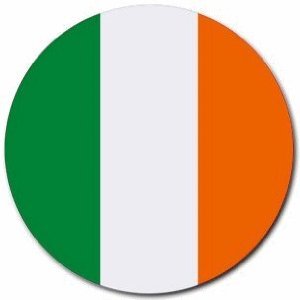 Ireland is a beautiful, mostly rural, country with a strong tradition of storytelling, music and mythology. It is also a religious country, mostly Roman Catholic, with many citizens attending church regularly. Ireland’s strong sense of national identity is celebrated annually within the country and around the world in the form of St Patrick’s Day, when many people wear green and throw parties. Many Irish live around the world but retain a strong sense of their cultural roots, forming Irish associations and groups. Politically, Ireland has a history of trouble stemming from differences of religious opinion and clashes with English rule, but now it is a peaceful and progressive country paving the way forward in terms of equality and liberal policies.
Ireland is a beautiful, mostly rural, country with a strong tradition of storytelling, music and mythology. It is also a religious country, mostly Roman Catholic, with many citizens attending church regularly. Ireland’s strong sense of national identity is celebrated annually within the country and around the world in the form of St Patrick’s Day, when many people wear green and throw parties. Many Irish live around the world but retain a strong sense of their cultural roots, forming Irish associations and groups. Politically, Ireland has a history of trouble stemming from differences of religious opinion and clashes with English rule, but now it is a peaceful and progressive country paving the way forward in terms of equality and liberal policies.
Was this page helpful?
Our commitment to delivering trustworthy and engaging content is at the heart of what we do. Each fact on our site is contributed by real users like you, bringing a wealth of diverse insights and information. To ensure the highest standards of accuracy and reliability, our dedicated editors meticulously review each submission. This process guarantees that the facts we share are not only fascinating but also credible. Trust in our commitment to quality and authenticity as you explore and learn with us.
